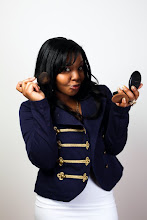'"Don’t even get me started, I don’t watch it. I suggest to my kids [a 20-something daughter and a college-age son] that they don’t watch it… I’m ashamed of it, if you want to know the truth."
It wasn’t always that way. “When we started BET, it was going to be the Ebony magazine on television,” Johnson tells me. “We had public affairs programming. We had news… I had a show called Teen Summit, we had a large variety of programming, but the problem is that then the video revolution started up… And then something started happening, and I didn’t like it all. And I remember during those days we would sit up and watch these videos and decide which ones were going on and which ones were not. We got a lot of backlash from recording artists…and we had to start showing them. I didn’t like the way women were being portrayed in these videos.
Johnson says she no longer has any connection with BET. “I just really wish—and not just BET but a lot of television programming—that they would stop lowering the bar so far just so they can get eyeballs to the screen,” she says. “I know they think that’s what’s going to keep programming on the air; that’s what’s going to sell advertising. But there has got to be some responsibility. Somebody has got to take this over. Because with all the studies that are out there, this is contributing to an atmosphere of free sex, ‘I don’t have to protect myself anymore.’'
shame, shame, shame. . . get it together to BET.



No comments:
Post a Comment